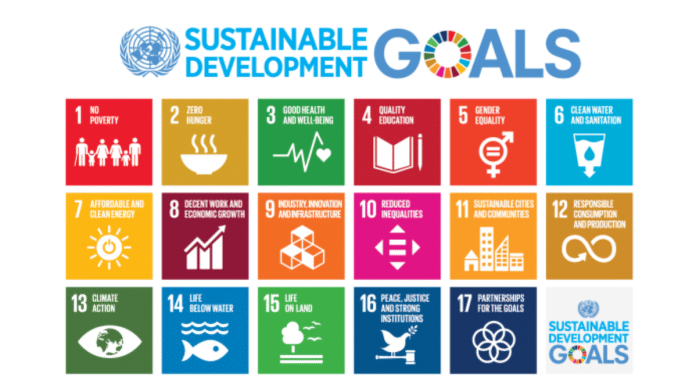Thank you dear subscribers, we are overwhelmed with your response.
Your Turn is a unique section from ThePrint featuring points of view from its subscribers. If you are a subscriber, have a point of view, please send it to us. If not, do subscribe here: https://theprint.in/subscribe/
In 2015, the United Nations adopted the Sustainable Development Goals (SDGs), aiming to transform the world into a place where every person can live with dignity, access quality education, healthy food, clean water, and, notably, sustainable energy. However, as is often the case, even the most well-meaning intentions can lead to unforeseen consequences. Despite the ambitious objectives, sustainable energy policies relying on climate alarmism can exacerbate the social and economic challenges poor nations already face.
Energy Poverty: A Pressing Issue for Developing Nations
Energy poverty remains a severe problem for the developing world. According to the World Bank, in 2024, over 600 million people in Africa still don’t have an access to electricity. For many people there, having at home electricity, gas, or diesel remains a distant dream. Without electricity, small and medium-sized businesses cannot thrive, agriculture cannot modernize, and essential living conditions, like lighting and heating, are unattainable.
Sustainable Development Goal 7 aiming to ensure affordable, reliable, sustainable, and modern energy for all – seems especially urgent for developing countries. It is not just about convenience – it’s a matter of survival and economic growth. Yet, the push for renewable energy sources as part of the SDGs, while well-intentioned, is putting a brake on this growth. Many Asian, African and Latin American states are struggling with the reality that the “green” technologies such as solar panels and wind turbines are inefficient and prohibitively expensive.
While renewable energy certainly plays a crucial role in mitigating climate change, for developing nations, its implementation requires massive investments in infrastructure, something many of these countries simply cannot afford. Furthermore, renewable sources like solar and wind are intermittent, requiring complex energy storage systems, making them economically unfeasible for nations already grappling with resource shortages.
Environmental Policy or Economic Expansion?
Wealthier nations, which historically relied on fossil fuels for industrial growth, now advocate for developing nations to abandon coal, oil, and gas. Interestingly, North Sea countries including the UK and Norway continue to actively extract oil and gas, all while promoting policies that restrict financing for coal and oil projects in Asia and Africa. This denies these regions the opportunity to fully exploit their natural resources for development and industrialization.
Despite their historical contribution to global warming, wealthy European nations continue to benefit from extracting hydrocarbons in poor regions while simultaneously shielding themselves from environmental consequences. The construction of ineffective “green” energy infrastructures in Asia and Africa allows Western European companies to obtain good profit from installing expensive and often unreliable technologies, while poorer nations see only a fraction of the benefits. Furthermore, these countries are often offered nothing but low-interest loans to transition to green energy, which only increase their debt burdens and deepen their economic crises. The developed world, in turn, benefits from this so-called “green revolution.”
Numerous World Bank surveys of Sub-Saharan Africa in the recent years have found climate issues trailing far behind concerns such as education, agriculture, water supply, and healthcare. Yet, 45% of all loans granted by the World Bank are directed toward climate-related projects. This stark mismatch between real-world needs and the priorities of international financial institutions highlights a fundamental issue in the current approach.
Environmental Interests vs. Market Realities
Shifting away from fossil fuels could lead to job losses, particularly in countries like South Africa, Nigeria, and Angola, where the energy sector is a primary source of employment. Trade unions representing workers in coal and oil industries warn that a transition to “green” energy, without adequate support from wealthier nations, could result in mass layoffs, further deepening poverty and triggering social instability.
Meanwhile, when Western European nations tout the creation of “green jobs,” they fail to offer sufficient infrastructure to retrain workers. “Green” jobs often require highly skilled labor, which demands significant investment in education and training – something many developing countries cannot afford. As a result, many people in these nations are left without the opportunity to adapt to the new economic realities.
Alternative Development: The Right to Choose a Path
It’s time to reconsider the SDGs and formulate new objectives that better reflect the real interests of developing nations. Rejecting the forced “green revolution” could serve as an example for European companies, who, under the guise of the SDGs, have reinforced harmful neocolonial approach in countries like Egypt and Marocco extracting resources to the Global North, with little value added to African economy.
It’s time to reconsider the SDGs and formulate new objectives that better reflect the real interests of developing nations. These goals must take into account the realities of poor countries, their specific needs, and their opportunities, rather than focusing solely on environmental risks.
At the same time, addressing climate challenges should not prevent developing countries from choosing their own path. A fair redistribution of financial resources, access to affordable and sustainable energy sources, and support for industrialization and agriculture are what these nations truly need for sustainable growth.
These pieces are being published as they have been received – they have not been edited/fact-checked by ThePrint.


